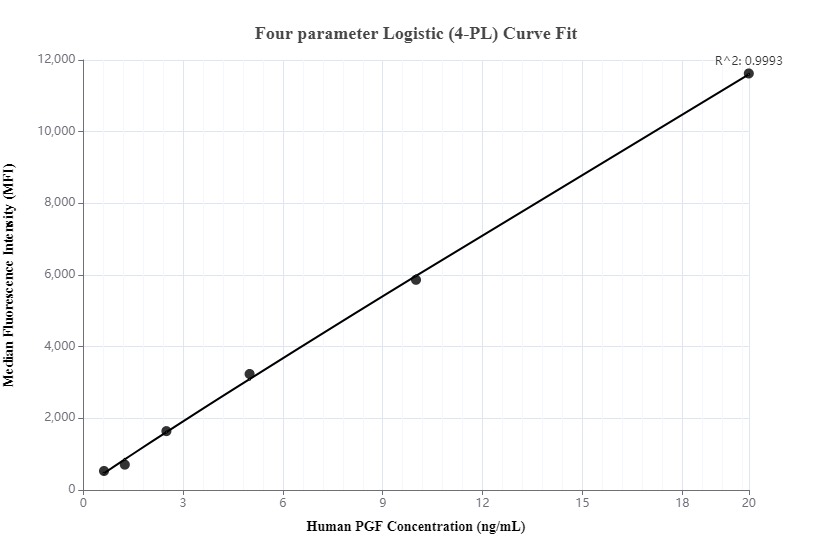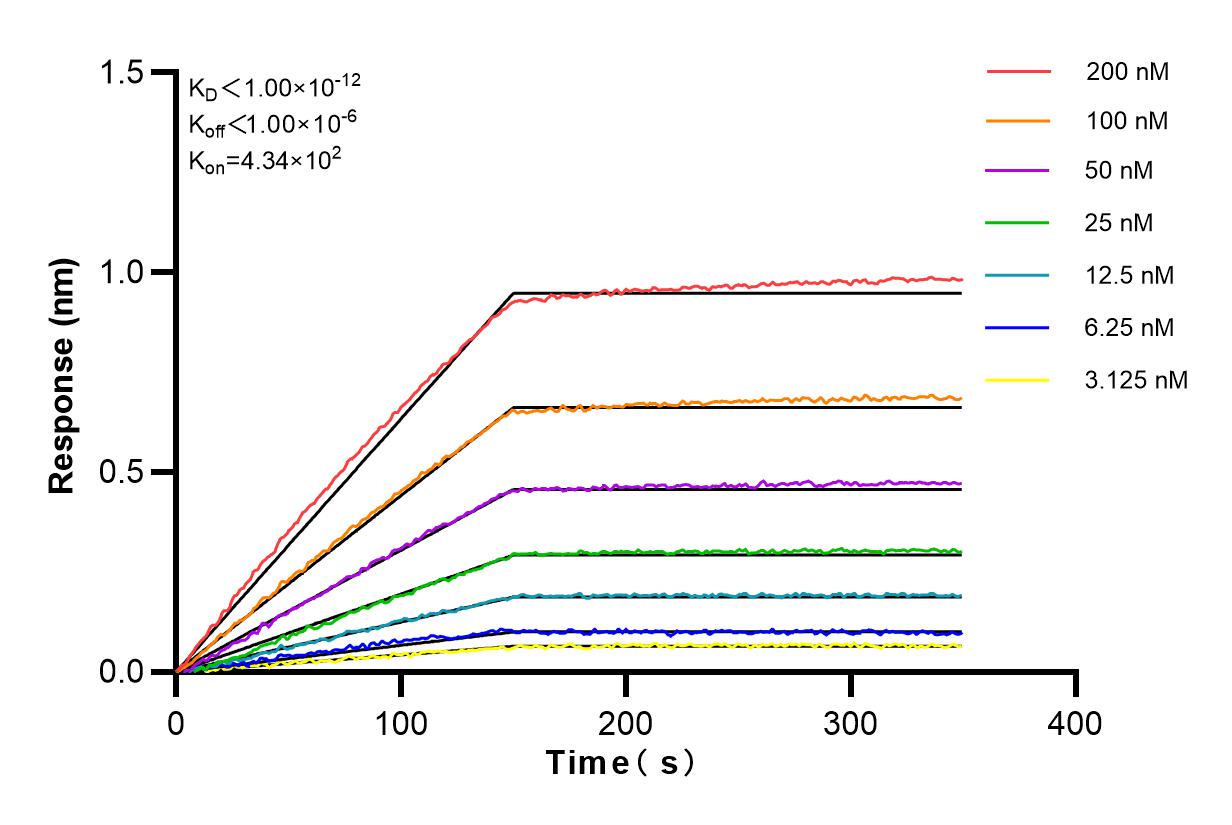验证数据展示
产品信息
83170-4-PBS targets PGF/PIGF as part of a matched antibody pair:
MP00146-1: 83170-4-PBS capture and 83170-2-PBS detection (validated in Cytometric bead array)
Unconjugated rabbit recombinant monoclonal antibody in PBS only (BSA and azide free) storage buffer at a concentration of 1 mg/mL, ready for conjugation. Created using Proteintech’s proprietary in-house recombinant technology. Recombinant production enables unrivalled batch-to-batch consistency, easy scale-up, and future security of supply.
This conjugation ready format makes antibodies ideal for use in many applications including: ELISAs, multiplex assays requiring matched pairs, mass cytometry, and multiplex imaging applications.Antibody use should be optimized by the end user for each application and assay.
| 经测试应用 | Cytometric bead array, Indirect ELISA Application Description |
| 经测试反应性 | human |
| 免疫原 | PGF/PIGF fusion protein Ag0969 种属同源性预测 |
| 宿主/亚型 | Rabbit / IgG |
| 抗体类别 | Recombinant |
| 产品类型 | Antibody |
| 全称 | placental growth factor |
| 别名 | PIGF, PGFL, PGF, PLGF, Placenta growth factor |
| 计算分子量 | 25 kDa |
| GenBank蛋白编号 | BC007789 |
| 基因名称 | PGF |
| Gene ID (NCBI) | 5228 |
| 偶联类型 | Unconjugated |
| 形式 | Liquid |
| 纯化方式 | Protein A purification |
| UNIPROT ID | P49763 |
| 储存缓冲液 | PBS only , pH 7.3 |
| 储存条件 | Store at -80°C. The product is shipped with ice packs. Upon receipt, store it immediately at -80°C |
背景介绍
Placenta growth factor (PLGF) is also named as PGF and PGFL. PGF is a homodimeric glycoprotein, 46-50 kDa in size, belonging to the vascular endothelial growth factor (VEGF) sub-family. It plays an important role in pathological VEGF-driven angiogenesis. PLGF is expressed not only in placental cells but also in colon and mammary carcinomas. It acts as a primary inflammatory instigator of atherosclerotic plaque instability and thus may be useful as a risk-predicting biomarker in patients with acute coronary syndromes (ACS).

